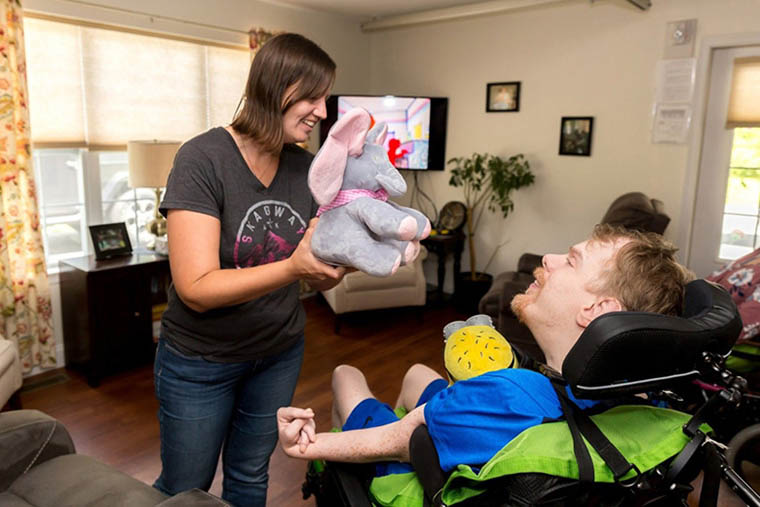How to Manage Caregiver Burnout
Guest article by KenCrest
Compassionate caregivers devote their lives to doing right by others. Sometimes, an excessive amount of compassion can have severe consequences. With enough exposure to those living with challenges, caregivers can become fatigued and eventually burn out.
Caregiver burnout, from physical illness to anxiety, depression, and even the inability to concentrate or socialize, can make everyday life difficult. Don’t ignore these signs and symptoms. By paying attention to how you’re feeling and responding to the duties of your role as a caregiver, you can protect yourself from caregiver burnout.
Prevent caregiver burnout with these tips and tricks.
Consume a balanced diet.
Food is our fuel. As such, it should be an essential part of your day as a caregiver. Make time for your meals, as well as a few snacks throughout the day. Snacks fill the gaps between mealtimes, especially if you’re busy, and you miss the opportunity to eat. It’s important to eat the right foods, too. Plenty of fresh fruit and vegetables should be built into your diet along with the necessary grains and proteins. If you don’t have a lot of time to eat while you’re caregiving, incorporate foods that are quick and easy to prepare, like yogurt or trail mix.
Make time for rest.
A good night’s sleep is necessary to function. Sleep deprivation can cause you to be disoriented or checked out when you’re providing care to others. To prevent burnout, stick to a routine that allows you to get plenty of rest. If you have trouble unwinding after being a caregiver, try avoiding caffeine in the evening hours and turning off your electronic devices at least an hour before bed.
Stay active.
 Physical activity can play a significant role in preventing caregiver burnout. Whether you go to a local gym or simply take a walk around your neighborhood, getting your blood pumping can be an excellent stress reliever. Making time to do right by yourself and participate in physical activity is an integral part of staying healthy and avoiding burning out. Exercise boosts endorphins, which can help you remain happy and calm throughout the day. Even if it’s just a 20-minute activity, whatever you can squeeze in will be beneficial to your physical and mental health.
Physical activity can play a significant role in preventing caregiver burnout. Whether you go to a local gym or simply take a walk around your neighborhood, getting your blood pumping can be an excellent stress reliever. Making time to do right by yourself and participate in physical activity is an integral part of staying healthy and avoiding burning out. Exercise boosts endorphins, which can help you remain happy and calm throughout the day. Even if it’s just a 20-minute activity, whatever you can squeeze in will be beneficial to your physical and mental health.
Take a break.
We all need a break. Whether it’s a week’s vacation or a mental health day, taking time away from your caregiving responsibilities is essential to being a good caregiver. Doing so will allow you to check-in with yourself and better manage stress.
Chase your passions.
Being a caregiver isn’t the only thing that defines you as a person. You have plenty of other interests. When you take a break from being a caregiver, use that time to do something you love! Travel, pottery, painting, and even reading – fill your free time with activities that make you happy.
Ask for help when you need it.
If you feel completely overwhelmed by your role as a caregiver and can’t figure out what needs to change, seeking professional help can be beneficial. You don’t have to go through these feelings alone. Talking to an unbiased third party will allow you to get your feelings off your chest and help you to create coping mechanisms for when you feel overwhelmed and stressed.
If you can’t take care of yourself, you won’t be able to provide care to others! Be the best caregiver you can be by avoiding burnout with these tips.

KenCrest provides educational services to children and families in Philadelphia and community-based supports to people with developmental or intellectual disabilities and their families throughout the age continuum—from newborns to senior adults—in Pennsylvania, Delaware, and Connecticut. KenCrest serves over 12,000 individuals per year.








